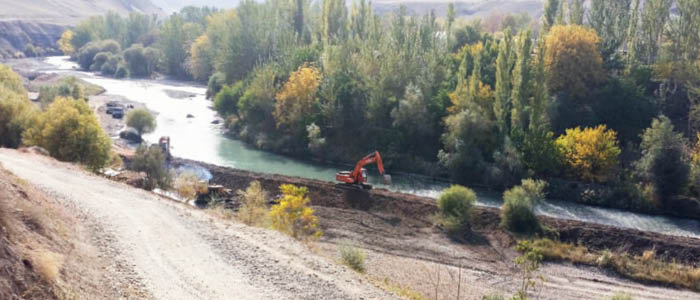Recent buzz in Montenegro, according to Komnenic Managing Partner Milos Komnenic, revolves primarily around new and proposed legislation in the country, including a newly-adopted Law on Spatial Planning and Construction of Objects, as well as the proposed new Law on Commercial Companies and new Labor Law, both of which are undergoing public debate.
Komnenic describes the new Construction law — which was adopted on September 30, 2017 — as "a total change from the previous law, and thus very important for investments” in the country. “The new law has introduced a totally different procedure and a new framework for spatial planning and construction itself,” he says. “The most important change in the law is that the spatial planning procedure has been placed under the authority of the relevant ministry. The idea now is to regulate everything through two plans — the Master Plan of Montenegro and the General Regulation Plan — instead of the previous eight. Both of the plans have been prepared, controlled, and approved in a specific procedure regulated by the law and by the relevant ministry with the participation of all other involved bodies of Montenegro.” The most notable change, he explains, is that, “before you were obliged to have a construction permit and usage permits to start construction, issued either by the Ministry or the municipality, depending on the authority. They have terminated these two permits, and transferred all responsibility to the architects, auditors, and particularly licensed supervision entities. Now for any kind of construction project, there is an obligation to have an audit by the licensed company.” The process going forward requires only a filing with the Ministry, rather than a permitting process. "So instead of waiting for a specific permit based on the documentation submitted by the investor, the investor only has to file the technical documentation defined by Article 91. He doesn’t have to wait for the issuance of a construction permit.”
The law has generated significant controversy, he says, “and even some of the members of the government coalition didn’t want to vote for it, arguing that by centralizing powers within one authority, the Ministry has taken all the power from the municipalities.”
The law does other things as well, including addressing the methods — including financial — by which the 40,000+ construction projects in the country built without necessary permits or contrary to the permit can be made legal “The government expects that this law will generate significant financial income as a result of this legalization process, as well as through a property tax,” Komnenic reports, noting that this process will be facilitated by an expected increase in the number of inspectors in the area, a decrease of the number of municipality employees who were previously engaged in spatial planning, and other procedures related to the construction and usage permit.
Finally, Komnenic says, “the law, for the first time, provides a framework for foreign legal entities and physical persons (such as foreign engineers, architects, etc.), so that for example coming from the European economic area have the right to operate in the terriotity of the Montenegrin state, as long as they satisfy some additional criteria. Application of these provisions are delayed until Montenegro joins the European Union."
Ultimately, Komnenic is cautiously hopeful about what he calls "a very important law.” According to him, “the idea is very good, but it’s completely different, so we’ll see how it's implementation goes. Looking at the law itself, we think it’s very business-oriented. The intent is to create a one-stop shop for investors in the process of construction, simplifying those procedures while simultaneously increasing the responsibilities and liabilities of the parties involved. The general concern is about the transitional period of time —how this will function in the next year or two, while it becomes fully implemented. I think it’s very good for us, and takes into consideration EU standards. But it’s a 180 degree turn, and those kinds of changes in the legal framework are always problematic.”
The Construction law will soon be joined by a new Law on Commercial Companies as well. Public debate on the draft law — which expands the 98 articles in the current code to almost 400 (“it’s a big change,” says Komnenic, whose office will be advising the Ministry of Economy on the proposed law by submitting comments from a private practice point of view) — was held on September 25th, and the Ministry is now in the process of reviewing the comments of interested parties before making final revisions. The new law, which conforms with the expectations of the European Union, should be brought before Parliament early in 2018.
A new Labor Law also currently being considered is expected to change the minimum period of defined working relationships from 24 to 36 months. “This law is also under discussion, and it will probably be brought to Parliament before the end of the year,” Komnenic says, noting that “it’s impossible to predict its ultimate effect until you see the final draft.”
Finally, Komnenic says, the government is still evaluating options regarding the proposed economic passport program. "In June the government called all potentially interested parties to propose a potential model for the economic passports, which will allow investors at a certain level to obtain Montenegrin citizenship. The government’s still not sure if it will be an investor model, a contribution model, or a combination thereof. So the government is asking for input about the ideal model and estimates for the country, and then it will choose a model based on which it will grant licenses and begin promoting the model to potential investors."






























